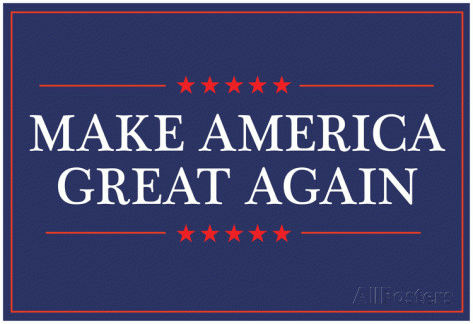A tightwad Republican Congress and a federal debt equal to GDP give him little room for manoeuver. He has no control over monetary policy. This leaves tax policies, deregulation and social measures as possible tools to reach his goals. His tax policy is a repeat of Ronald Reagan's trickle down policy. He will not produce the expected results. Corporations will use the windfall to pay dividends and buy back stocks. This is good for the stock market, but bad for the economy. A personal income tax with a reduced number of tranches at a lower level will increase the budget deficit, do little for the economy and benefit the wealthy more than the middle or lower classes. If he repeals the Dodd-Frank Act, a new, more devastating financial crisis cannot be ruled out. He would do well to forget that pledge. Finally, by refusing to raise the federal minimum wage and waive public universities' tuition fees, he shut himself off of popular measures. Foreign policy has little if any impact on presidential elections. This will be the case in 2020, as long as Trump has no "boots-on-the-ground' engaged in a war in a foreign country.
A one-term president
In his speech, Trump singles out "the global power structure" as the cause for the United States' "disastrous failures, massive illegal immigration and economic and foreign policies that bled our country dry" and he calls on the people to stop "this corrupt machine". These are powerful words. But words alone will not suffice. The challenges he faces are enormous, and as we saw, the odds are against him. His electorate is likely to be disappointed and will most likely not reelect him in 2020. If so, it'll be an easy task for the oligarchs to morph the constitution into what Sheldon S. Wolin called a "managed democracy". This is the "illusion of democracy", Trump is talking about.
(Note: You can view every article as one long page if you sign up as an Advocate Member, or higher).





